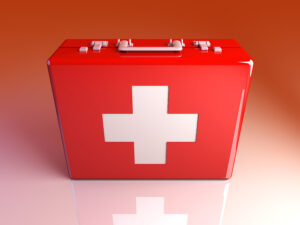First Aid Knowledge For Seniors
People of all ages should know how to give first aid, especially seniors. This is because seniors are more vulnerable to specific health problems and injuries. Accidents and falls are more likely to happen to seniors due to mobility and balance problems. Seniors who know how to do first aid can react quickly to injuries like cuts, bruises, broken bones, and sprains, which can lessen their severity and prevent further problems. Loved ones and elder care professionals should also have a bit of first aid knowledge to support the seniors they care for, as well as be able to help seniors create an in-home first aid kit.
How Does First Aid Knowledge Benefit Seniors?

Elder Care Totowa NJ – First Aid Knowledge For Seniors
Increased independence: If seniors know how to give first aid, they can be more self-reliant and less dependent on others. Efficient first aid can prevent minor injuries and help seniors keep up with their daily activities.
First aid knowledge might also be symptom knowledge: Many seniors have long-term health problems like heart disease, diabetes, and breathing problems that must be managed. Knowing how to react and what symptoms are associated with things like heart attacks, low blood sugar, or asthma can benefit seniors. In addition, elder care professionals can help them better manage their conditions.
Medication management is part of first aid knowledge: Seniors often take more than one medication, and if they or their elder care aids know first aid, they can take the right steps in case of an accidental overdose or an adverse reaction. Knowing the signs of a bad reaction can save a life.
First aid will help you prepare for an emergency: Seniors may need to move quickly in situations like a stroke, seizure, or cardiac arrest. Knowing how to spot the warning signs, handle first aid, and call for help can greatly improve the chances of a good result.
What Should Seniors Have in Their First Aid Kit?
First aid kits can be found in stores, or loved ones can help seniors create their own. A few common things that should be in their kit are listed below.
- Adhesive bandages that come in all sizes and shapes
- Sterile gauze pads and adhesive tape
- Antiseptic wipes or liquid
- Disposable gloves
- Tweezers and scissors
- Over-the-counter painkillers like acetaminophen or ibuprofen.
- Cold packs
- A list of emergency phone numbers
- Information about the senior’s health
Seniors and their elder care providers need to check and update the first aid kit’s contents regularly, change expired items, and ensure that seniors feel comfortable using them. In addition to updating the supplies, don’t forget to update the health information and emergency numbers. When seniors know how to do first aid and have a well-stocked first aid kit, they can treat injuries, deal with chronic conditions, and possibly decrease their risk of a bigger issue.
When talking with seniors about first aid, loved ones, and the elder care team might also consider having seniors attend a formal class that includes CPR. This will give them hands-on training and increased confidence in using their skills.
Source: https://www.healthline.com/health/first-aid/first-aid-for-seniors
https://www.kendalathome.org/blog/basic-first-aid-for-older-adults
If you or a senior family member are considering hiring Elder Care Services in Totowa NJ, please contact the caring staff at Caring Solutions Home Care LLC. In-home senior care servicing Bergen & Passaic Counties. Call today at (973) 427-3553.
- Planning a Beach Trip With Your Elderly Loved One - March 24, 2025
- How Overnight Care At Home Helps Seniors - March 10, 2025
- What Lifestyle Changes Should Seniors Expect with High Blood Pressure? - February 19, 2025

